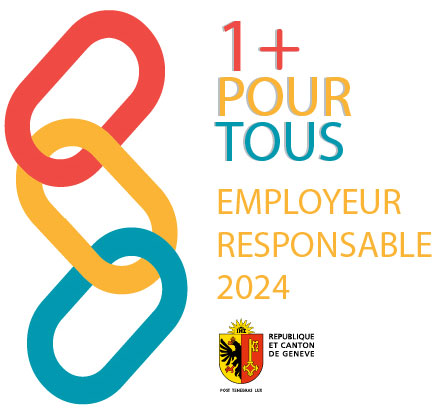Employment contract
Contracts can be permanent or temporary. Fixed-term contracts are also offered if a post holder needs to be replaced temporarily, or if awaiting renewal of funding for a post.
The trial period is usually three months.
For employees with a permanent contract, with unbroken service and sufficient contributions, the status of "fonctionnaire" (civil servant) can be obtained after a trial period of two years.
The following are among the essential conditions for being awarded a contract:
- Being in good health
- Having no criminal record
- Having permission to live or work in Switzerland, if you do not have Swiss nationality
- Adhering to the conditions for obtaining the right to practice, for professions that require this.
A consultation with a medical advisor, or Staff Health Services, will be arranged before you start your new role.
Remuneration
Salaries for employees of the State of Geneva depend on the nature of the role and the number of years of effective experience in post.
The salary chart (FR) consists of categories and annual increments, divided into 13 monthly installments. The category corresponds to the level of post, and the annual increment corresponds to the number of years of experience.
The post category is granted from the date of appointment, provided that your basic qualification is recognized in Switzerland. If this is not the case, the salary is reduced by one category until recognition is obtained. The post's category can be increased if promotion is obtained or if a member of the nursing staff passes a specialized training course.
On appointment, years of experience in Switzerland or abroad are recognized for experience that is considered to be useful to the new post.
In addition to the payments laid down in the salary chart, additional hourly payments are made for public holidays, weekends (Saturday and Sunday) and nights.
There is also a monthly bonus that is specific to public sector medical institutions, and which is paid from the 4th month of the appointment, for job roles in categories 4-15 inclusive.
Insurance
Accidents at work and elsewhere
Insurance for accidents at work is covered by the institution. A contribution is taken from your salary for insurance against accidents outside work.
If you have an accident, you can receive private-sector care from the institution, if places are available.
Health-related and admission costs, as well as loss of income, are covered.
Health
Health insurance is compulsory and it is your responsibility to pay for it.
According to bilateral agreements, those moving from European countries are obliged to take out health insurance in Switzerland. However, it has been agreed that for those living in border areas, this will be optional. Such people can elect to be covered by the CMU (Universal Health Fund) or by a private insurance fund. More Information here (FR).
Loss of income in the event of illness
During the first year, insurance against loss of income is your responsibility. It is optional, but you are strongly advised to take out this type of insurance. If you fall ill during the first three months of service, you will receive 100% of your salary for 14 days, and thereafter 50%. From the 4th month of service, you will receive 100% of your salary for 56 days, and then 50% thereafter. In all cases, your salary will no longer be paid from the 91st day of absence onwards.
From the second year of your contract onwards, you will be insured by the institution in return for a monthly contribution. You will receive 100% of your salary for up to 730 days, over a maximum period of 3 years.
Retirement
The Swiss retirement system is based on three "pillars":
- "Pillar 1" is an AVS contribution (old age and survivors' insurance). The contributions are made jointly by you and your employer. The level of contribution is the same for both: 5.15%. AVS provides contributors with a basic pension from retirement age (65 years for men and 64 for women).
- "Pillar 2" is managed by a pension fund or a private fund management organization. The purpose of this “pillar” is to maintain the living standards of the insured in the event of old age or disability, and to provide for the needs of the insured's beneficiaries in the event of death. You are responsible for one third of the contribution, and the institution pays two thirds. The overall level of contribution and the division of contributions may be reviewed in years to come.
- In order to supplement your pension, you can set up a "third pillar" with a Swiss bank or private insurance company. This is optional, and can be linked to the first two components.
